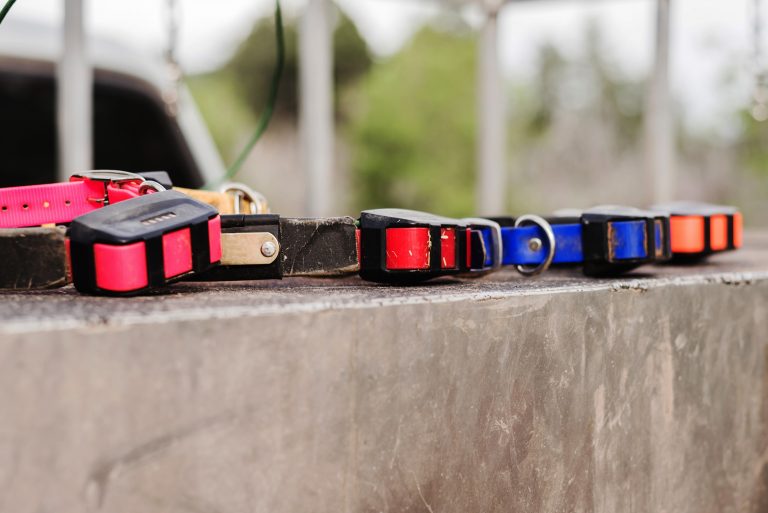With the start of your hunting season quickly approaching, it’s always good to be prepared for anything before hopping in the truck on opening day. To be ready, here are the top 5 things that the staff at Double U recommend doing to make the most of your season from the get-go.
1. Inspect Your Collars
Inspecting your collars is an important first step to having a successful season. This will help eliminate any possible headache of having to send your gear in for replacement mid-season. This will also help ensure that you don’t lose any dogs because of something that could have been prevented before you even left the house. Below are a few things that we recommend checking in your collars:
- Checking your collars for updates
- Making sure that all of your devices are picking up GPS signal
- Checking that all of your devices are taking and holding a charge
- Look for dry rot on the GPS straps
- Replacing any chewed up antennas
- Looking for missing screws on the back of the collars and/or penetrating bite holes that could cause water to enter inside
2. Inspect Your Handhelds
In addition to your collars, your handhelds are just as important. Your handheld is what keeps you in contact with your dogs so why wouldn't you want it working in top condition? Here’s what we recommend looking for in your handhelds:
- Checking your handhelds for updates
- Clearing out your archived tracks to improve performance
- Check that your handhelds are communicate with the collars
- Make sure your devices are taking a charge and don’t have damaged charging ports
- Look for holes in the power buttons
- Check for debris around the edge of the screen on your Alpha 100
- Check your map cards to be sure they are current enough for your area and that they are still properly working in your devices
- Make sure your SMA nut on your antenna is not loose, which can cause damage if it's not tightened properly
3. Prepare Your Dogs for Anything
Like checking over your gear, your dogs should all be checked over to be sure that they are in prime condition to be hunting. Illness and injury can make or break a dog, and an emergency trip to the vet can certainly be an unexpected cost that no one wants to deal with. Here’s some things to do to be sure that your dogs are ready to go:
- Ensure your dogs are in shape by exercising them weeks before your hunt starts
- Check that all of your dogs have proper identification in case they get lost or picked up
- Make sure your dogs are up to date on any preventatives or shots
- Trim your dogs nails and apply pad conditioning products to prevent foot injuries
- Watch your dogs for any signs of illness or injuries before letting them on the ground
- Restock any of your dog specific first aid supplies
- Bring enough dog food and water for your hunt
4. Restock Your Field Equipment
Get a new dog? Get a new truck? Forget that one of your leads broke at the end of last season? Make sure you’ve got all of the necessary gear to outfit your set up from day one. The last thing anyone wants to deal with is finding out your gear is on the verge of breaking or is already broken. Take a quick inventory of all of your gear at least a week before your season starts so you have enough time to source any new supplies. Here’s a quick checklist to help get you started:
- Make sure your long-range antennas are properly secured and the cables are not broken
- Check your leads and couplers for any signs of breaking or tearing, and ensure that you have enough for your dogs
- Inspect your dog box for any breaks or damage that might need repair
- Charge up any of your extra batteries and keep extra chargers in your truck
- Restock any emergency or general first aid supplies
- Check the weather ahead of time so you’ve got the right gear for yourself, dogs and trucks such as jackets, water, chains, etc.
- Do any needed maintenance on your vehicle to prevent breakdowns
5. Have Fun!
Whether you’re hunting by yourself or with a group, the last thing you want is to be frustrated all season because things aren’t going the way you expected. You can always learn from your mistakes to be better prepared for next year.







